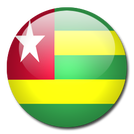International Headteacher
Menu
|
Facts and Statistics
Full name: Togolese Republic Population: 6.8 million (UN, 2010) Capital: Lome Area: 56,785 sq km (21,925 sq miles) Major languages: French (official), local languages Major religions: Indigenous beliefs, Christianity, Islam Life expectancy: 56 years (men), 59 years (women) (UN) Monetary unit: 1 CFA (Communaute Financiere Africaine) franc = 100 centimes Main exports: Cocoa, phosphates, coffee, cotton GNI per capita: US $490 (World Bank, 2010) Internet domain: .tg International dialling code: +228 Togo, a narrow strip of land on Africa's west coast, has for years been the target of criticism over its human rights record and political governance. Tensions spilled over into deadly violence when its strong-arm, veteran leader died in 2005 and a succession crisis followed. Political reconciliation remains elusive. Togo formed part of the Slave Coast, from where captives were shipped abroad by European slavers during the 17th century. In 1884 it became the German protectorate of Togoland. It was seized by Britain and France at the start of World War I, divided and administered under League of Nations mandates. France granted independence in 1960 and Togo's first president, Sylvanus Olympio, was assassinated in a military coup three years later. Head of the armed forces Gnassingbe Eyadema seized power in a 1967 coup and dissolved all political parties. Although political parties were legalised in 1991 and a democratic constitution was adopted in 1992, the leadership was accused of suppressing opposition and of cheating in elections. A joint UN-Organisation of African Unity investigation into claims that hundreds of people were killed after controversial elections in 1998 concluded that there had been systematic human rights violations. Gnassingbe Eyadema died in early 2005 after 38 years in power. The military's immediate but short-lived installation of his son, Faure Gnassingbe, as president provoked widespread international condemnation. Mr Faure stood down and called elections which he won two months later. The opposition said the vote was rigged. The developments of 2005 led to renewed questions about a commitment to democracy made by Togo in 2004 in a bid to normalise ties with the EU, which cut off aid in 1993 over the country's human rights record. Moreover, up to 500 people were killed in the political violence surrounding the presidential poll, according to the UN. Around 40,000 Togolese fled to neighbouring countries. |
information provided by www.bbcnews.co.uk

